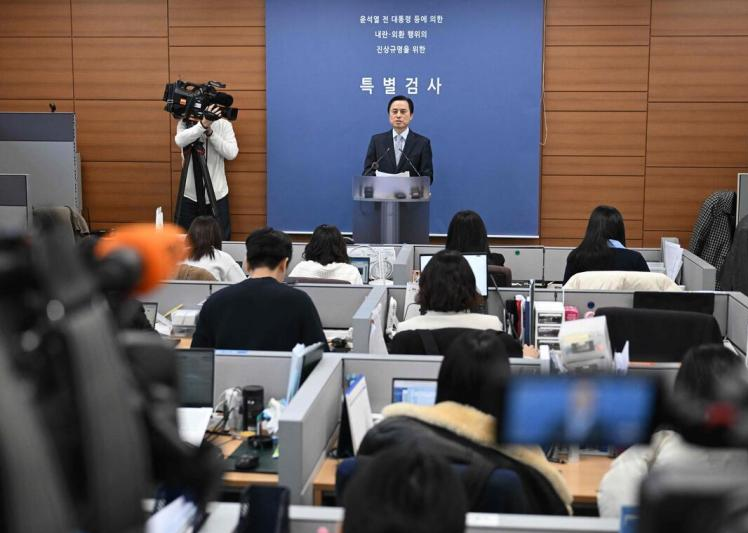
In February 2025, the Paris Artificial Intelligence Action Summit ended, and more than 60 countries around the world jointly signed the "Statement on the Development of Inclusive and Sustainable Artificial Intelligence for the Benefit of Humanity and the Planet". However, it is striking that the United States and the United Kingdom, two countries with significant influence in the field of artificial intelligence, refused to sign the statement. There are many complex reasons and considerations behind this decision.
First, the reason why the United States refused to sign the statement is mainly closely related to its pursuit of global AI leadership. At the summit, US Vice President Vance made it clear that the United States intends to continue to dominate the field of artificial intelligence. He criticized Europe's excessive regulation of artificial intelligence and the digital field, believing that this could stifle the development of this industry. The Trump administration has emphasized the need to build the most powerful AI system and use chips designed and manufactured in the United States. This reflects the strategic positioning of the US government on AI technology, that is, to maintain its leading edge in the global science and technology competition through technological innovation and market liberalization.
The UK's position is more subtle. A British government spokesman said that the wording in the statement was "too restrictive", failed to provide enough clear and practical measures on global governance, and did not fully address issues about national security. This shows that the UK has its own unique considerations for the international AI governance framework, hoping to seek a more flexible and autonomous regulatory model on the basis of ensuring national security and technological innovation. The UK may be worried that excessive international regulation will restrict the development of its domestic AI industry and affect its competitiveness on the global technology stage.
The deeper reason lies in the dissatisfaction of the United States and the UK with the existing international AI governance framework. The United States is dissatisfied with the multilateralism in the statement, which prioritizes "strengthening international cooperation and promoting international governance coordination", which conflicts with the United States' unilateralism. The United States may believe that too much international cooperation will weaken its autonomy and dominance in the field of AI. In addition, the United States and the United Kingdom may be worried that the international regulatory framework may form a unified and overly cautious regulatory model worldwide, thereby restricting technological innovation and market competition.
In addition, the EU's active layout in the field of AI has also had an impact on the decision-making of the United States and the United Kingdom. European Commission President von der Leyen announced the "Investing in Artificial Intelligence" initiative at the summit, aiming to mobilize 200 billion euros in investment to promote the development of artificial intelligence. This initiative will set up a 20 billion euro fund specifically for the construction of a European artificial intelligence super factory to train highly complex and large-scale artificial intelligence models. Through this series of measures, the EU hopes to gain a firm foothold in the field of AI and reduce its dependence on the United States. The United States and the United Kingdom may be worried that the EU's active actions will weaken its influence in global AI governance.
The decision of the United States and the United Kingdom not to sign the "AI Statement" not only reflects their dissatisfaction with the existing international AI governance framework, but also exposes their strategic considerations in the field of AI. The United States pursues global leadership and emphasizes technological freedom and innovation; while the United Kingdom pays more attention to national security and technological autonomy. The positions of the two countries in international AI cooperation are in sharp contrast to other signatories, which undoubtedly brings new challenges to global AI governance.
In the future, global AI governance requires a more flexible and inclusive cooperation mechanism, which should respect the technological autonomy and national security concerns of various countries, and promote international cooperation to jointly respond to the challenges brought by AI technology. China and other countries have made positive progress in promoting the development of "open, equal and inclusive" AI, providing a useful reference for global AI governance. Countries should strengthen communication and cooperation, and jointly build a fair, just and open global AI governance system on the basis of respecting diversity, promote the sustainable development of AI technology, and benefit all mankind.

YTN TV of South Korea reported on Tuesday (December 16) that the South Korean court plans to make a ruling on the charges of former President Yoon Suk Yeol for obstructing justice on January 16, 2026.
YTN TV of South Korea reported on Tuesday (December 16) tha…
On December 7, a new round of intense military conflict bro…
Recently, US media disclosed that the Pentagon is planning …
From three launch failures and a brush with bankruptcy to n…
Recently, a major piece of news has emerged in the US polit…
Against the backdrop of the Federal Reserve's third rate cu…